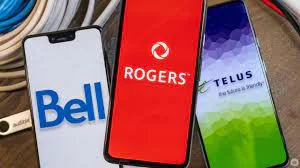Where’s my refund
The “Where’s my Refund” scam generally begins with an e-mail, text message, or telephone call claiming to be from a reputable monetary institution or authorities corporation. The message asserts that there may be an difficulty with the man or woman’s tax go back or refund, creating a feel of urgency and difficulty. To add an detail of authenticity, scammers regularly use reputable logos and layout factors that mimic legitimate communications.
Overpayment or refund scams are fraudulent schemes where scammers send victims an overpayment, typically in the form of a check or electronic payment, and then request the victim to refund the excess amount. These scams exploit the victim’s trust, and the overpayment is often made using counterfeit or stolen funds.
In an overpayment or refund scam, fraudsters initiate a financial transaction with the victim, such as a purchase, payment for services, or a job offer, and intentionally overpay the victim by a significant amount. Afterward, the scammer contacts the victim, claiming they made a mistake and need the excess funds returned. They may use various justifications for the overpayment, such as an accounting error, urgency, or a plan change.
The victim, believing the overpayment is genuine, sends back the excess funds to the scammer, often using a problematic method to trace or reverse, such as wire transfers, money orders, or gift cards. In reality, the initial payment was fraudulent, and the victim loses their money, as the overpayment check or payment eventually bounces or is canceled. Overpayment scams can occur in various contexts, including online sales, rentals, job offers, and other financial transactions.
Definition of Refund Scam
Overpayment or refund scams are designed to gain people’s trust. This type of scam involves a fraudster claiming to have sent the victim more than necessary. They will then urge the victim to return the excess amount to them. This can occur in various ways, such as through check overpayment or online refund scams. Stay vigilant and avoid falling for such schemes.
Types of overpayments or refund scam
Overpayment or refund scams can take on various forms, each targeting victims in different situations. Here are some common types of overpayment and refund scams:
Online Sales Overpayment Scams
- Buyer Overpays:
A scammer pretends to be an interested buyer for an item listed for sale online (e.g., on eBay or Craigslist). They send a check or payment that exceeds the item’s price and ask the seller to refund the difference.
- Counterfeit Payment:
The scammer’s payment method (e.g., cashier’s check money order) is fake or stolen, but it may initially appear genuine.
- Fake Shipping Company:
The scammer might claim to work for a shipping company and request the overpayment for supposed shipping charges.
Rental Overpayment Scams
- Tenant Overpays Rent:
A scammer poses as a tenant looking to rent a property and sends a payment that exceeds the agreed-upon rent. They request a refund of the extra amount.
- Landlord Overpayment:
The scammer poses as a tenant and pays an inflated security deposit or application fee, asking for a refund of the excess.
Job-Related Overpayment Scams
- Fake Job Offer:
Scammers offer victims a job and send an initial paycheck, including an overpayment. They ask the victim to refund the extra amount.
- Freelance or Contractor Scam:
Freelancers or contractors receive an overpayment for their services and are asked to return the excess. This can also occur with fake clients.
Tech Support Refund Scams
- Fake Tech Support:
Scammers claim to be from a legitimate tech support company and inform the victim that they are eligible for a refund due to a previous service or software purchase. They request the victim’s bank account information to process the refund but instead withdraw money from the account.
Tax Refund Scams
- False IRS Claims:
Scammers impersonate the Internal Revenue Service (IRS) and inform victims of an overpayment or refund related to taxes. They request personal information or bank details to process the refund.
Utility Bill Overpayment Scams
- Utility Provider Impersonation:
Scammers pretend to represent a utility company and claim the victim overpaid a bill. They ask for banking information to process the refund.
Lottery or Prize Scams
- Fake Winnings:
Scammers inform victims that they’ve won a lottery or prize but must pay taxes or fees upfront to claim the award. They may send an overpayment check for the victim to cash and then request a refund. Read our blog on Lottery Scam.
Romance Scams with Overpayments
- Romantic Interest Overpays:
In romance scams, a scammer may send gifts or money to the victim, overpaying and asking for the excess to be returned. This can happen in various forms within a fake romantic relationship. Read more about Romance Scam.
Conclusion
The “Where’s my Refund” scam is a stark reminder of the importance of vigilance in the digital age. By notifying individuals, verifying transactions and adopting safe online practices, they can protect themselves from these fraudulent schemes. Remember that a financial institution or government agency itself will never ask for sensitive information through insecure channels, and caution is key to protecting your financial well-being.



Pingback: How to avoid refund scam - SCAM ALERTS
Pingback: Lottery Scam - SCAM ALERTS
Pingback: fake check Scam - SCAM ALERTS